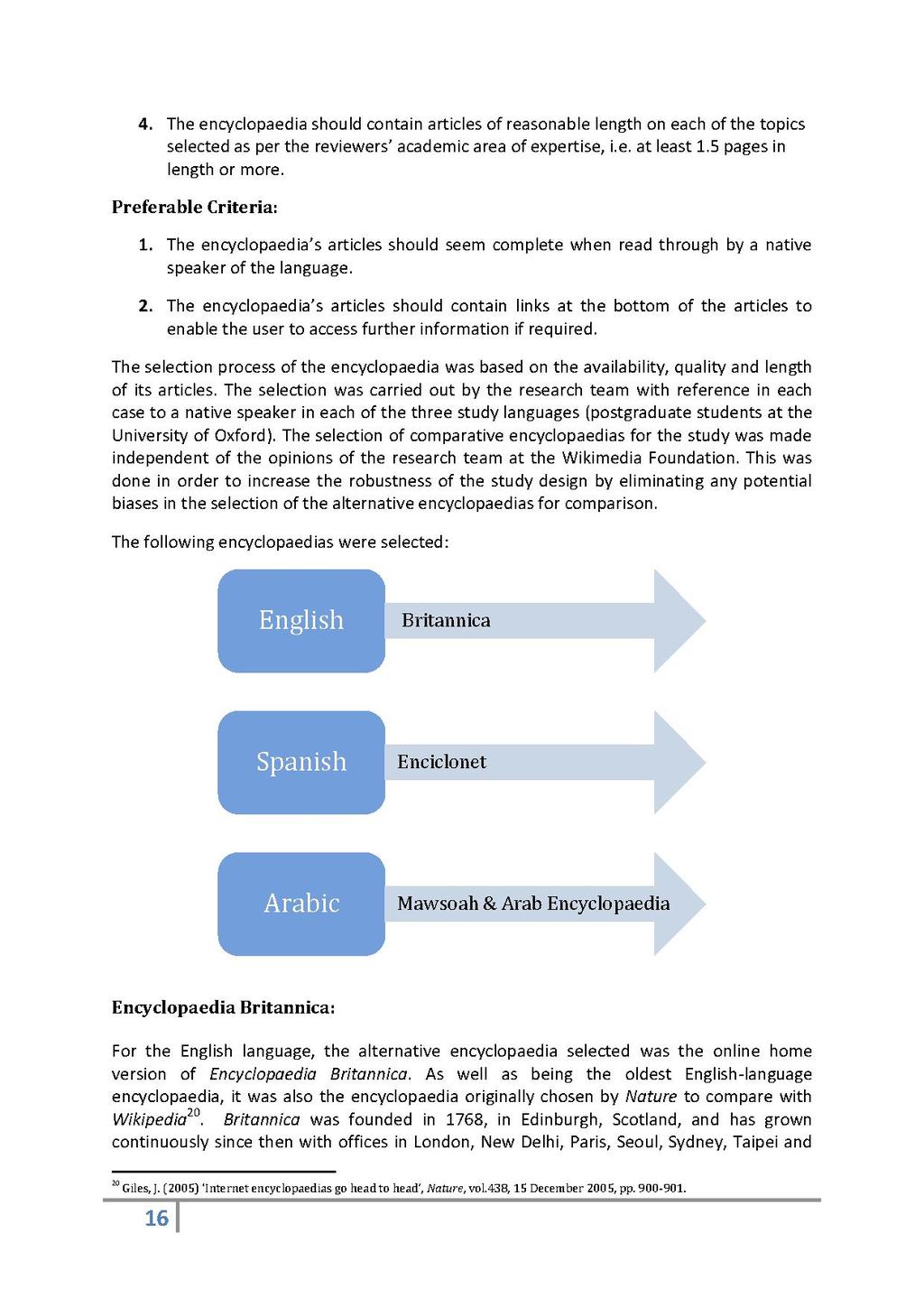- The encyclopaedia should contain articles of reasonable length on each of the topics selected as per the reviewers' academic area of expertise, i.e. at least 1.5 pages in length or more.
Preferable Criteria:
- The encyclopaedia's articles should seem complete when read through by a native speaker of the language.
- The encyclopaedia's articles should contain links at the bottom of the articles to enable the user to access further information if required.
The selection process of the encyclopaedia was based on the availability, quality and length of its articles. The selection was carried out by the research team with reference in each case to a native speaker in each of the three study languages (postgraduate students at the University of Oxford). The selection of comparative encyclopaedias for the study was made independent of the opinions of the research team at the Wikimedia Foundation. This was done in order to increase the robustness of the study design by eliminating any potential biases in the selection of the alternative encyclopaedias for comparison.
The following encyclopaedias were selected:

Encyclopaedia Britannica:
For the English language, the alternative encyclopaedia selected was the online home version of Encyclopaedia Britannica. As well as being the oldest English-language encyclopaedia, it was also the encyclopaedia originally chosen by Nature to compare with Wikipedia[1]. Britannica was founded in 1768, in Edinburgh, Scotland, and has grown continuously since then with offices in London, New Delhi, Paris, Seoul, Sydney, Taipei and
- ↑ Giles, J. (2005) 'Internet encyclopaedias go head to head', Nature, vol.438, 15 December 2005, pp. 900-901.
16
